La crise ukrainienne s’envenime sévèrement. Nous risquons, pour la première fois depuis 70 ans, de voir éclater une guerre en Europe contre la Russie. Perspective épouvantable mais bien réelle. Cette possibilité est ouverte depuis que le gouvernement de Kiev, poussé par l’administration américaine et la CIA, a décidé d’intervenir militairement, au prix de nombreux morts civils, de milliers de réfugiés (400.000 ( !) selon l’ONG Human Right Watch ), de destructions de bâtiments et d’infrastructures innombrables, contre les séparatistes pro-russes de l’est de l’Ukraine dans le Donbass. Kiev, conseillé par ses ”amis” occidentaux (surtout américains) a refusé la seule solution intelligente qui était la négociation diplomatique. Analysons l’enchaînement des faits et les intérêts en jeu, pour déterminer qui sont les pousse-au-crime et deviner si la situation ne va pas s’embraser, selon une grille d’ analyse que l’on ne risque pas de trouver dans la presse occidentale. Les parties de cet article sont : 1) La stratégie belliciste antirusse de Washington 2) Ukraine : le piège tendu à Poutine. 3) L’hypothèse d’une guerre contre la Russie. 4) Les Trois Sœurs à la tête de l’Amérique.
La stratégie belliciste antirusse de Washington
Washington a déjà essayé, en 1999, d’allumer la guerre en Europe par l’intervention contre la Serbie – avec bombardements meurtriers de l’OTAN auxquels la France a lâchement participé en reniant tous les principes gaulliens –, agression aussi illégale au regard de l’ONU et du droit international que le fut celle contre l’Irak. Aujourd’hui, le processus se répète avec l’Ukraine. Dans les deux cas, ce que peu de polémologues ont vu, il s’agit de provoquer militairement la Russie. Afin de la pousser à réagir et de pouvoir entrer dans un processus de guerre ouverte contre elle.
Avant la chute de l’URSS, Washington se serait bien gardé de provoquer militairement l’Union soviétique. La prudence était dictée par le principe du MAD (”fou” en anglais) ou Mutual Assured Destruction (”destruction mutuelle assurée”), c’est-à-dire le risque de guerre nucléaire. Mais aussi parce l’OTAN n’était pas sûre de pouvoir gagner une guerre classique en Europe contre le Pacte de Varsovie. Tout a changé avec la disparition de l’URSS en 1991, la dissolution du Pacte de Varsovie et l’entrée dans l’OTAN de plusieurs anciens pays communistes, dont surtout la Pologne. La ”nouvelle Russie”, n’étant plus une grande puissance militaire, faisait moins peur. On pouvait donc l’encercler et la provoquer sans trop de risques.
L’arrivée de Vladimir Poutine, en l’an 2000, a été un coup de tonnerre. Il perturbe gravement les plans américains. Il commet le péché suprême de vouloir restaurer la Russie comme puissance internationale, alors que Washington croyait, (depuis Eltsine) qu’elle était définitivement reléguée au rang de puissance régionale. De plus, il a le tort de vouloir renforcer des liens économiques avec certains pays européens, notamment l’Allemagne et la France. L’axe Paris-Berlin–Moscou est la hantise du Pentagone. On ne pardonne pas non plus à Poutine, en bon géostratège, d’avoir parfaitement compris, contrairement à Eltsine, la stratégie d’encerclement et de neutralisation américaine. D’autre part, encore plus grave, il est patriote et veut restaurer les valeurs traditionnelles russes, contre l’idéologie occidentaliste cosmopolite et libertaire.
Ce point est capital : Poutine est beaucoup plus dangereux, pour les idéologues de Washington et l’intelligentsia, que le communisme soviétique qui était devenu un mammouth paralysé et sans danger. Ainsi, Poutine est l’homme à abattre. On va donc faire démarrer l’énorme machine de la propagande médiatique internationale, qui fonctionne comme un réseau électrique à haute tension, pour faire passer M. Poutine pour un néo-stalinien, voire un fasciste et un autocrate infréquentable, et la Russie comme un malheureux pays soumis à une dictature.
Il faut faire vite. Poutine réarme, restaure la puissance russe. Il se rapproche de la Chine, qui réarme aussi. Bien que dépensant 50% du budget militaire mondial, le Pentagone est inquiet. De plus, en Syrie, la diplomatie américaine a été humiliée face à M. Serge Lavrov, le ministre des Affaires étrangères russe. La Russie a marqué un point, c’est inacceptable. Il n’est pas question qu’elle redevienne une grande puissance. Mais il faut faire vite, face à ce remuant M. Poutine.
Ukraine : le piège tendu à Poutine
On va donc tendre à la Russie de Poutine un piège. En utilisant l’instabilité et la mauvaise qualité du régime ukrainien, prétexte idéal. (voir autres articles de ce blog.) Première phase : pousser l’Ukraine à se rapprocher de l’UE, pour braquer la Russie et créer une tension avec elle. Que ce rapprochement soit une aberration économique n’a aucune importance. Deuxième acte : la ”révolution” meurtrière de Maïdan, qui permet de renverser le régime de Kiev et le faire remplacer par un autre, antirusse et pro-occidental ou plutôt pro-américain. Les ONG américaines et la CIA ont grandement aidé ce coup d’État dissimulé, un grand modèle machiavélien. Troisième acte : après le référendum sur le rattachement de la Crimée (russe) à la Fédération de Russie et après la rébellion de l’Est russophone de l’Ukraine supposée être provoquée par le Kremlin ”impérialiste”, on prend des sanctions économiques et financières contre Moscou, décidées en réalité à Washington et servilement suivies par les dirigeants de l’UE. Ces sanctions, illégales en droit, nuisent gravement aux intérêts des Européens, mais favorisent les intérêts américains. Elles visent aussi à faire perdre son sang froid au Kremlin et à le pousser à des contre-sanctions (rétorsions) comme la limitation de certaines importations. Ce qui est fait. Et ce qui a pour effet de dégrader encore l’image de la Russie dans les opinions occidentales. À cela s’est ajouté l’affaire de l’avion de la Malaysian Airlines, abattu dans des circonstances peu claires.
Le quatrième acte, décisif, a été de pousser le gouvernement de Kiev à envoyer son armée contre les sécessionnistes du Donbass, plutôt que d’entamer des négociations sous patronage international comme le proposait la Russie. Structurellement, l’armée d’Ukraine est mal équipée et peu professionnelle. Le Pentagone lui a donc fourni des conseillers. Les dégâts des combats entre l’armée ukrainienne (terre et air) et les sécessionnistes sont considérables, surtout pour les civils. La propagande suggère l’idée que la Russie fournit des armes et des combattants aux sécessionnistes, sans preuve avérée. Mais l’objectif de la machination est de pousser l’armée russe à franchir la frontière pour contrer l’armée ukrainienne. Le fait que le convoi humanitaire russe ait été bloqué à la frontière renforce cette hypothèse. C’est ce casus belli que recherche Washington, en misant sur le fait que Poutine ne veut et ne peut pas perdre la face, sur le plan international et vis-à-vis de son opinion publique.
L’hypothèse d’une guerre contre la Russie
Imaginons que l’armée russe entre en Ukraine pour venir en aide aux sécessionnistes, faire cesser les massacres et les destructions et se présenter en force d’interposition. L’enchaînement serait le suivant : il y aurait affrontement armé direct avec les troupes ukrainiennes. Donc, un état de guerre ouvert de nature juridiquement international entre deux États. La Russie serait présentée comme l’agresseur, l’envahisseur. C’est le scénario secrètement espéré par les stratèges du Pentagone. Déjà, on prétend que – premier cran de l’engrenage – des armes lourdes et modernes sont livrées aux rebelles par les Russes, ce qui expliquerait les difficultés de l’armée de Kiev.
Devant l’impossibilité d’un mandat de l’ONU (vétos russe et chinois), Washington prendrait la tête d’une intervention armée de l’OTAN, sous sa direction, comme en Serbie et en Irak. Dans un premier temps, il s’agirait de frappes aériennes contre les troupes russes. Elles sont faciles à réaliser à partir des bases d’Europe orientale (Pologne, Pays baltes) ou de porte-avions munis de F14 Tomcat positionnés dans le Golfe persique ou en Baltique. Pour la première fois, un affrontement direct aurait lieu entre la Russie et l’OTAN, ce qui ne s’était jamais produit pendant la guerre froide. La suite des événements serait alors dramatique pour l’Europe mais conforme aux plans de Washington, ou plus exactement des ”trois sœurs” qui pilotent la Maison Blanche (voir plus bas).
Le double but est 1) de créer en Europe orientale une situation de crise aigüe déstabilisatrice, qui affaiblirait toute l’Europe et renforcerait le tutorat américain ; 2) d’obtenir une victoire militaire contre la Russie, forcée de se retirer d’Ukraine, en espérant humilier et faire tomber du même coup Poutine, bête noire de Washington, et le remplacer par un autre, un pion aux ordres. Cette stratégie stupide est inspirée par l’idéologie néo-conservatrice et néo-impérialiste américaine. Animée par un fanatisme ”soft”, dissimulé, elle tente de réagir au déclin relatif américain et de maintenir les USA comme ”unique superpuissance”. Casser les reins de la Russie apparaît comme un objectif constant. Ce rêve d’unique superpuissance, caressé lors de la chute de l’URSS, est d’autant plus poursuivi qu’il est hors de portée.
Cette stratégie d’apprentis sorciers joue avec le feu. Elle peut déboucher sur une confrontation militaire ingérable. Elle est combattue par de nombreux lobbies à l’intérieur même des USA, voire même par l’impuissant Obama. L’idée que tout cela puisse déboucher sur une catastrophe, notamment nucléaire, est absente : on estime qu’une confrontation militaire avec la Russie ne débouchera pas sur une riposte nucléaire de cette dernière.
C’est une grande différence avec les analystes de la guerre froide, Mac Namara ou Kissinger, qui prônaient la modération envers l’URSS pour éviter les frappes nucléaires. La nouvelle génération de analystes de la CIA et du Pentagone ne croit plus au deterrent (dissuasion) nucléaire russe. Ils pensent qu’on peut faire sans risques une guerre classique à la Russie, qui n’osera jamais utiliser ses armes nucléaires. Cette option stratégique, dépourvue de tout principe de précaution, est démente : cette démence (ou hubris), dissimulée sous le voile de la ”guerre juste”, est malheureusement la marque de fabrique de la politique étrangère américaine, qui, depuis que les ”Trois Sœurs” la dirigent, a perdu tous ses repères.
Les Trois Sœurs à la tête de l’Amérique
En Syrie, Washington aide objectivement les djihadistes contre Bachar El Assad, mais en Irak, il les bombarde. De même que, jadis, en Afghanistan, les USA armaient les Talibans contre l’Armée rouge avant d’essayer en vain de les exterminer. L’invasion illégale de l’Irak a produit le résultat contraire à celui proposé : le chaos absolu. Inutile d’additionner les exemples que toute le monde connaît : la politique étrangère de Washington est celle du ”gendarme du monde”, du ”supersheriff” qui ne sait plus utiliser son bâton ou son révolver, qui perd pied partout et crée le désordre dans tous les saloons. La dernière lubie est de provoquer la Russie à la guerre après avoir créé la crise ukrainienne. (1)
Les USA ne sont pas du tout une puissance ”militariste”, au sens de la Prusse, mais belliciste. C’est-à-dire que l’état permanent de guerre extérieure et de haut budget militaire est jugé profitable à la fois pour l’impératif d’hégémonie et pour celui de l’industrie d’armement, qui est une locomotive économique – ce qui est très bien vu. À condition que le sanctuaire américain ne soit pas touché (il l’a quand même été le 11 septembre, ce qui a bouleversé tous les repères et stimulé l’interventionnisme). C’est le concept de ”guerre de projection”. L’idéologie américaine, dans ce domaine, se fonde évidemment sur la morale, la démocratie d’apparence et une bonne conscience hypocrite issue du puritanisme anglais.
Un affrontement armé de moyenne intensité, si possible sans envoi de troupes au sol, entre l’OTAN – c’est-à-dire en gros l’Europe sous commandement américain – et la Russie est le rêve secret du Pentagone et de la CIA, irrigués par l’idéologie belliciste des néo-conservateurs. Le Président Obama est vent debout contre cette stratégie, mais c’est un faible, qui est neutralisé. Il obéit, il essaie de freiner tant qu’il peut sans vraiment y parvenir. N’oublions pas que, contrairement à une légende, la Maison Blanche (l’exécutif) ne gouverne pas réellement la politique américaine, sauf quand elle se plie– comme Johnson, Reagan et les deux Bush – aux injonctions de la CIA, du Pentagone et du complexe militaro-industriel, qui sont les ”trois sœurs” qui dirigent réellement les USA. Les Présidents qui essayent de s’opposer aux Trois Sœurs sont soit assassinés (Kennedy) soit démis (Nixon). On laisse tranquille les faibles (Carter, Obama) qui ne sont pas d’accord mais laissent faire.
Les Trois Sœurs, bien que très puissantes, sont très mauvaises en stratégie et s’en prennent le plus souvent aux ”mauvais cochons” pour parler comme Churchill. Elles désignent le plus souvent le mauvais ennemi, s’allient à de mauvais amis, changent constamment d’alliances, combattent ceux qu’elle viennent d’armer Concernant le djihad islamique, qui est objectivement l’ennemi principal de tous les peuples civilisés, elles l’auront plus aidé concrètement que combattu. Elles n’ont pas conscience du danger qu’il représente.
Cependant, les Trois Sœurs ont un objectif constant : empêcher la renaissance de la puissance russe, car face à la montée inexorable de l’immense Chine, elles ne peuvent strictement rien. Elles se concentrent donc sur trois cibles : 1) maintenir l’Union européenne dans la dépendance, ce dont les Européens, assujettis volontaires, sont les seuls responsables ; 2) éviter à tout prix une alliance stratégique et économique forte entre l’UE et la Fédération de Russie, en enfonçant notamment un coin entre les deux, c’est-à-dire la Pologne, les Pays Baltes et l’Ukraine, priés de devenir russophobes ; 3) affaiblir, déstabiliser puis amollir de l’intérieur la Russie, afin de la neutraliser en douceur.
C’était bien parti avec Eltsine. Avec Vladimir Poutine, cet objectif géostratégique s’est heurté à un obstacle. Il ne restait plus pour les Trois Sœurs qu’une seule option, le Plan B : la guerre. Nous y sommes.
(1) Voir mon livre Le Coup d’État mondial, essai sur le nouvel impérialisme américain, L’Aencre.



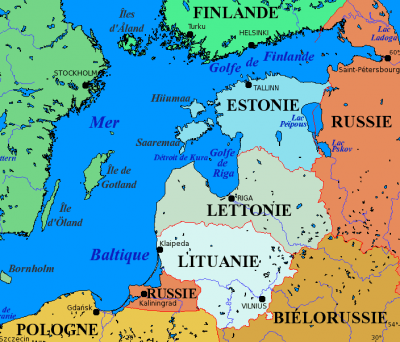

 del.icio.us
del.icio.us
 Digg
Digg El Gobierno estadounidense ha negado reiteradamente que esté realizando espionaje económico o industrial, del que acusa a China.
El Gobierno estadounidense ha negado reiteradamente que esté realizando espionaje económico o industrial, del que acusa a China.
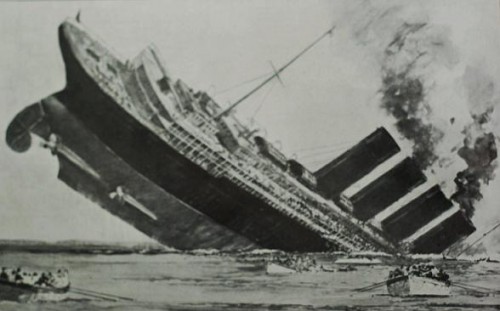


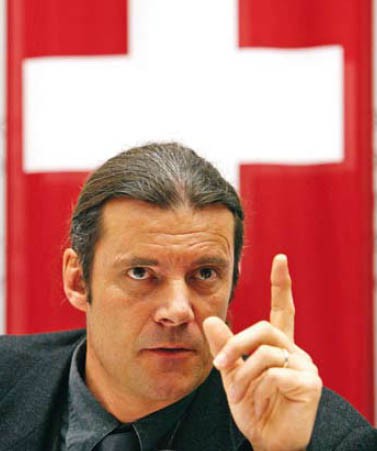 Zeit-Fragen: Warum haben Sie die «Petition für eine neutrale Schweiz» lanciert, was wollen Sie damit erreichen?
Zeit-Fragen: Warum haben Sie die «Petition für eine neutrale Schweiz» lanciert, was wollen Sie damit erreichen?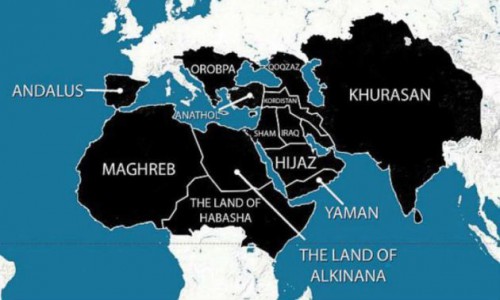
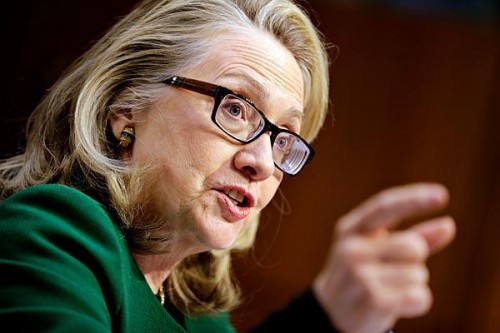
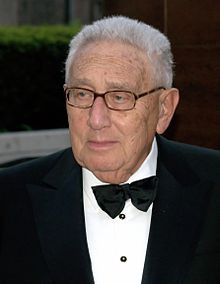 Henry Kissinger
Henry Kissinger 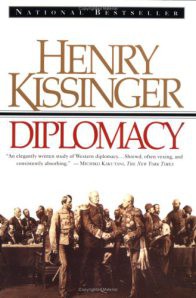 It is interesting that he uses the term “governance” and not government. In any case, here Henry is spitting out the party line that the US spread its influence far and wide only for the benefit of bringing “free and representative governance” to the downtrodden (brown and yellow, usually) people of the world.
It is interesting that he uses the term “governance” and not government. In any case, here Henry is spitting out the party line that the US spread its influence far and wide only for the benefit of bringing “free and representative governance” to the downtrodden (brown and yellow, usually) people of the world.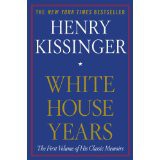 While likely to have happened eventually anyway (arbitrary borders established in Paris at the end of the Great War were not going to last forever), clearly the US government moved this along significantly.
While likely to have happened eventually anyway (arbitrary borders established in Paris at the end of the Great War were not going to last forever), clearly the US government moved this along significantly. Gerade in Zeiten großer Krisen wie in der Ukraine, im Irak und in Syrien muß die Frage erlaubt sein, wie unsere internationale Ordnung aussehen sollte.
Gerade in Zeiten großer Krisen wie in der Ukraine, im Irak und in Syrien muß die Frage erlaubt sein, wie unsere internationale Ordnung aussehen sollte.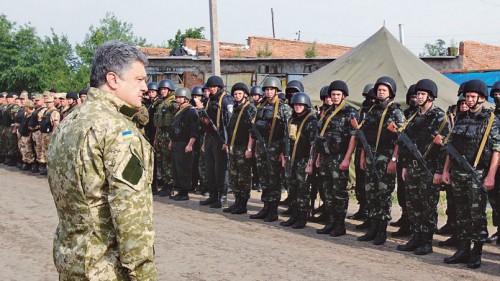



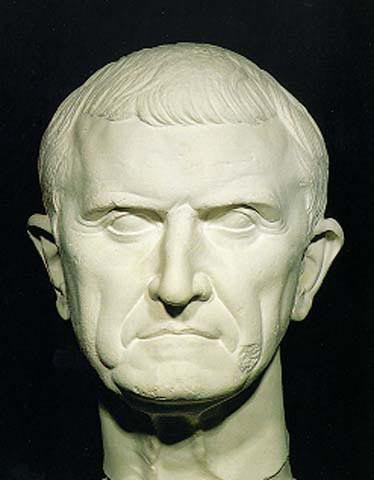 Crassus (which in Latin means solid, or dense) knew better. He decided to attack the Parthians across the River Euphrates, going head-on into territory which the Parthians knew very well and dominated with their cataphracts, heavily armed horses controlled by skillful horsemen. The tanks of their time. Crassus had seven legions (42,000 infantrymen, divided into 70 cohorts of 600 men, or 420 centuries, each commanded by a centurion), backed up by 4,000 auxiliaries (light infantry) and around 4,000 cavalry. The Parthians were vastly inferior in number, having some 1,000 cataphracts, 9,000 light cavalry archers and around 1,000 supply camels, strategically placed on both flanks and in the center, ably placed by the Spahbod (Field Marshal) Surena, who had an inexhaustible supply of arrows.
Crassus (which in Latin means solid, or dense) knew better. He decided to attack the Parthians across the River Euphrates, going head-on into territory which the Parthians knew very well and dominated with their cataphracts, heavily armed horses controlled by skillful horsemen. The tanks of their time. Crassus had seven legions (42,000 infantrymen, divided into 70 cohorts of 600 men, or 420 centuries, each commanded by a centurion), backed up by 4,000 auxiliaries (light infantry) and around 4,000 cavalry. The Parthians were vastly inferior in number, having some 1,000 cataphracts, 9,000 light cavalry archers and around 1,000 supply camels, strategically placed on both flanks and in the center, ably placed by the Spahbod (Field Marshal) Surena, who had an inexhaustible supply of arrows.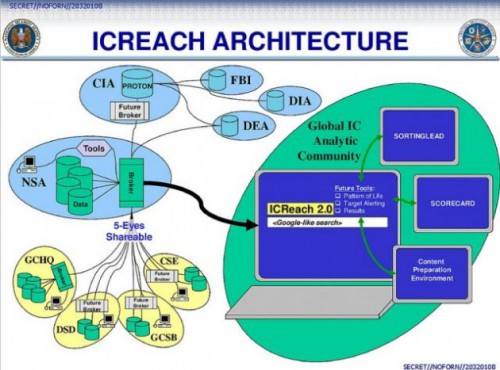
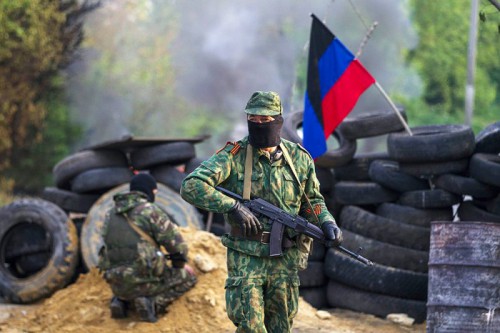




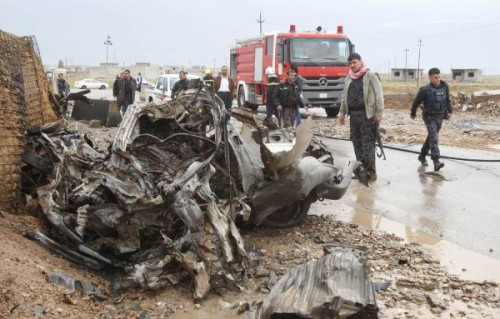
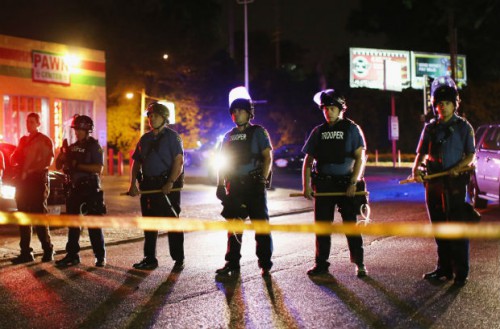
 Moreover, violent crime in America — assault, murder, robbery, rape — emanates disproportionately from the black community, and especially the young male members of that community.
Moreover, violent crime in America — assault, murder, robbery, rape — emanates disproportionately from the black community, and especially the young male members of that community.
